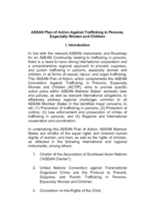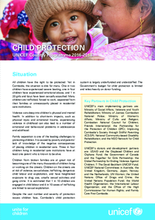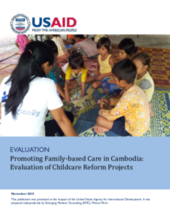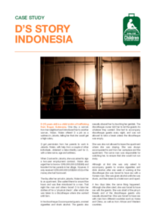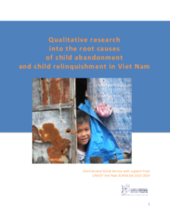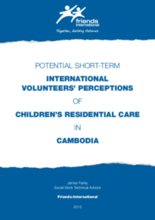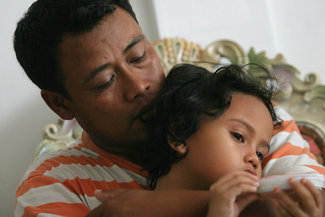

Displaying 551 - 560 of 753
This ASEAN Plan of Action, which complements the ASEAN Convention Against Trafficking in Persons, Especially Women and Children (ACTIP), aims to provide specific action plans within ASEAN Member States’ domestic laws and policies, as well as relevant international obligations, to effectively address regional challenges common to all ASEAN Member States in the identified major concerns.
This video explores the "business" of orphanage tourism in Cambodia and the ways in which Australians contribute to the problem.
This article investigates the relationships and differences between statelessness and migration. Its particular focus is on migration in Malaysia and how migration can lead to statelessness.
This document serves as a brief of the UNICEF Child Protection Programme provided in Cambodia.
This evaluation assesses two alternative care reform projects in Cambodia that share a common aim of strengthening child protection systems from grassroots to national levels.
The case study, which accompanies ECPAT's Global Study on Sexual Exploitation of Children in Travel and Tourism, tells the story of Dahlia, a 15 year-old girl from Indonesia who is a survivor of child sexual exploitation.
ISS, with support from UNICEF Viet Nam and MOLISA, undertook research on child abandonment and relinquishment in 2011 and 2012, as part of its follow up technical support to Viet Nam in overhauling its adoption system.
This paper explores the effects of a mother’s migration on her children’s well-being.
This paper uses data collected in 2008 and 2009 for a project on Child Health and Migrant Parents in South-East Asia (CHAMPSEA) to address a largely neglected research area by investigating the mental health of those who stay behind in Indonesia, Philippines and Vietnam to care for the children of overseas migrants.
The aim of this study is to identify the perceptions of potential short-term international tourists concerning children’s residential care in Cambodia.

